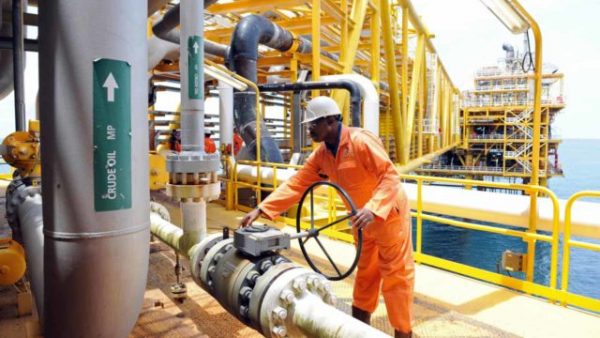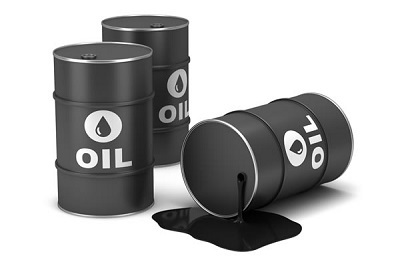NPDC loses N260bn as production capacity falls by 70%

The production capacity of the Nigerian Petroleum Development Company has significantly fallen due to pipeline sabotage.
The oil production subsidiary of the Nigerian National Petroleum Corporation, the Nigerian Petroleum Development Company, has been recording steady monthly losses arising from its inability to sell substantial volume of crude oil it is producing.
An analysis of the month-by-month financial report of the NPDC showed that the company’s inability to sell crude had steadily reduced its revenue between February 2016 and February 2017 by about N20bn monthly.
Officials of the NNPC confirmed to media correspondent in Abuja that the petroleum development company had lost over N260bn as a result of this, adding that the crude production capability of the NPDC had dropped by 70 per cent.
They noted that the national oil firm could indeed attain lofty heights with the support of Nigerians, especially in areas of security and integrity of infrastructure.
The Group General Manager, Group Public Affairs Division, NNPC, Mr. Ndu Ughamadu, admitted that the NPDC’s inability to sell crude and the resultant effect on the company’s revenue had been a source of concern to the corporation.
He, however, stated that the management of the NNPC was working out ways to address the issue.
“On the NPDC and pipeline vandalism, the NNPC management is still discussing it,” Ughamadu, who also referred our correspondent to the corporation’s reports on the matter, said.
In one of its financial and operations reports, the corporation stated that “with the restoration of the NPDC production, the NNPC can indeed post more impressive results where substantial portion of crude oil sale for the month of over N20bn could not be realised.”
Similarly, the NNPC in its just released operations reports for February 2017, showed that the NPDC’s contribution to the national crude oil and condensate production in January this year was the lowest at 1.18 million barrels, when compared with the contributions from joint ventures at 16.23 million barrels; production sharing contracts, 28.2 million barrels; alternative funding, 8.57 million barrels; and independent/marginal fields, 2.77 million barrels.
“Of the January 2017 production, JVs and PSCs contributed about 28.5 per cent and 49.52 per cent, respectively. While AF, NPDC and independents/marginal fields accounted for 15.05 per cent, 2.07 per cent and 4.86 per cent, respectively,” the corporation stated.
Officials of the oil firm told our correspondent on Saturday that the compromise of the integrity of the NNPC’s infrastructure by vandals, which led to the declaration of a force majeure by Shell Petroleum Development Company following the vandalism of the 48-inch Forcados export line, resulted in production shut-in of about 300,000 barrels of crude oil per day.
In a presentation to the House of Representatives Committee on Local Content, which was made available to our correspondent in Abuja, the NPDC’s Managing Director, Mr. Yusuf Matashi, explained that the pulverisation of the Forcados trunk line by militants in 2016 also impacted gas production by the company and its JV partners gravely.
He said, “The attack, which primarily led to a loss of about 70 per cent of the NPDC’s crude oil production capability, also had an effect on gas production. Unfortunately, gas production in the region we operate is not non-associated gas but associated with the crude oil we produce.
“So by the time we shut in the oil well, we also shut in most of the gas. That is why we now see the level of gas supply shortage for power generation.”
Matashi noted that some other operators might have other reasons for the shortfall in gas supply in their domain, but stressed that the damage of the Forcados export terminal supply line was the biggest obstacle to the production of gas by the NPDC and its JV partners.
He, however, stated that the company would increase its gas production by as much as 50 per cent whenever the Forcados line comes back on stream.
“The impact of the attack on that line is immeasurable and in the last one year, the NPDC has struggled to mitigate the effects of that act on its production,” Matashi explained.
The Director, Emerald Energy Institute, University of Port Harcourt, Prof. Wumi Iledare, expressed worry over the vandalism of pipelines and its impact on oil earnings by the country.
He, however, lauded the efforts of the Federal Government, led by Acting President Yemi Osinbajo, in ensuring peace and stability in the Niger Delta, a development that had also impacted positively on crude oil production in recent times.
Iledare said, “Why should someone or a group of persons rupture the country’s pipelines and plunge the entire nation into dire straits financially? It is uncalled for and should be condemned by all.
“This is particularly painful when you consider the effects of such acts on our national economy, although we’ve recorded some improvements in production volumes in recent times after the series of interventions by the acting President in the Niger Delta region.”
On oil production volumes, the latest operations report of the NNPC stated that a total of 56.95 million barrels of crude oil and condensate was produced in January 2017, representing an average daily production of 1.84 million barrels.
This represents an increase of 16.51 per cent compared to December 2016 performance.
It stated that the NPDC’s cumulative production from all fields (January 2016 to January 2017) amounted to 18,196,613 barrels of crude oil, which translated to an average daily production of 45,835 barrels.
Comparing the NPDC performance to national production, the report stated that the company’s production share amounted to 2.53 per cent.
It said, “The NPDC production continued to be hampered by the incessant pipeline vandalism in the Niger Delta. The NPDC is projected to ramp up production level to 250,000 barrels per day after the completion of the ongoing the NPDC re-kitting project and repairs of vandalised facilities.
“Production from the NPDC wholly operated assets amounted to 9,781,195 barrels (or 53.75 per cent of the total NPDC production) with Okono Okpoho (OML 119) alone producing 91.90 per cent of the NPDC wholly owned operated assets or 49.4 per cent of the total NPDC production.”
On the NPDC operated JV assets, in which the firm owns 55 per cent controlling interest, crude oil production amounted to 4,850,475 barrels or 26.66 per cent of the company’s total production.
The report also noted that for the non-operated assets, production level stood at 3,564,943 barrels or 19.59 per cent of the company’s production.







